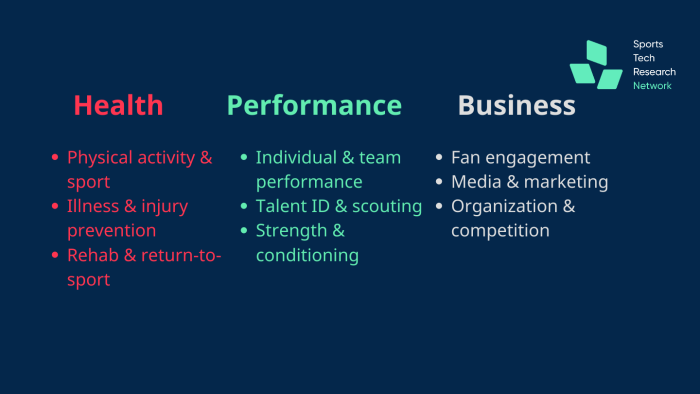A major contributor to the growth of this sports business innovation space has been the support of new and emerging sports technologies, some of them relying on university resources and academic insights. Across North America, Europe, Australia, Asia, and more broadly, universities have been an important player in the ideation and development of new and emerging technologies, in a variety of functions, from sports innovation labs to tech transfer, incubation and acceleration support, entrepreneurship advisors and mentors, technical specialists, product supporters, and so on.
Thus, there are a number of global ‘sports innovation and tech’ academic thought leaders, contributing broadly, in important multidisciplinary and open ways, to the next wave of sports business innovation and technology development. Whether these colleagues exist as leads of related labs, independent researchers and advisors, and/or actual startup management team members: we know from a cross-section of supporting input that a variety of academics are now specializing in this, from sports business to sports science, to sports engineering, to sports management studies, intersecting with a broad focus on sports innovation and technology.
Yet, these scholarly initiatives are very much disparate and fragmented across the academy; and little critical examination and/or body of literature related to this multidisciplinary field exists, including opportunities for academic engagement or output, not only in terms of publications and Ph.D.’s but also in terms of actual processes, products, and services leading to societal and economic impact.
Similarly, R&D professionals within companies, being SME’s or corporates, startups, and scaleups, etc. are playing a crucial role within the innovation and commercialization process of new innovations. Given the competitive nature of the sports tech ecosystem anno 2020, many of those professionals are looking into various opportunities the academic world can offer in terms of validation research, collaborative R&D, knowledge dissemination and tech transfer opportunities, etc.

Last but not least, research-driven experts as health and performance managers working in professional teams or leagues, and innovation managers in profit and non-profit sports organizations and even individual customers are looking into the newest insights coming from both the academic as the industry side, mainly with the objective to get to know and use the most effective, safe and user-friendly wearables, analytical platforms, exergames, and so on.
Thus, considerable evidence for a global sports tech research collaborative with a focus on theory-to-practice and technology transfer activities exists. And so, the Sports Tech Research Network (STRN), established at Ghent University (Belgium) in collaboration with Ryerson University (Canada), is intended to provide a common and collaborative global collective, focused on sports innovation and technology, to drive related scholarly excellence and academic engagement of like-minded and thought leaders and actors.
Through multidisciplinary collaboration, STRN will define, examine, and advance the global sports innovation and technology discipline, supported by an applied theory to practice model, and enhanced by a multitude of professional insight offerings.
Finally, STRN will work through its’ engaged members to enable richer integration and opportunity for the sports industry. With this, it plans to create the necessary insights, methodologies, events, etc. to further bridge the gap between academic know-how, prototypes, and other project (end-)results and their commercialization and implementation opportunities within the sports industry.

A group of partners, members, and ambassadors, representing leading global scholars and practitioners from the sports tech and innovation space, is now working on the further setup of the network and plans its first activities around the key themes of Health, Performance, and Business.
The STRN family is inviting you to provide your input through our ‘Expert feedback form’ and/or by getting in touch with the founder of the initiative, Kristof De Mey.





